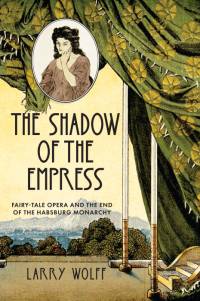Om The Shadow of the Empress
"In 1919 the last Habsburg rulers, Emperor Karl and Empress Zita, left Austria and went into exile. That same year, the fairy tale opera Die Frau ohne Schatten (The Woman Without a Shadow) had its premiere at the Vienna Opera. Viennese poet Hugo von Hofmannsthal and German composer Richard Strauss worked on Die Frau ohne Schatten through the bitter war years, imagining that it would triumphantly appear after the war to mark the victory of the German and Habsburg empires. Instead, the premiere came in the aftermath of catastrophic defeat. Strauss and von Hofmannsthal had turned emperors and empresses into fantastic fairy-tale characters; meanwhile, following the collapse of the Habsburg monarchy at the end of World War I, their real-life counterparts were removed from political life in Europe and began to be regarded as anachronistic, semi-mythological figures. This book explores how the changing circumstances of cultural production and reception before, during, and after World War I reshaped the political meanings of Die Frau ohne Schatten. Historian Larry Wolff's story of the opera's composition and performance history with a personal narrative of his Habsburg and Viennese family. Reflecting on the seismic cultural shifts that rocked post-imperial Europe, Wolff follows the real-life Emperor and Empress through the rise of Nazism, World War II, and the Cold War up until Zita's death in 1989, when she had herself become a fairy-tale figure"--
Visa mer

